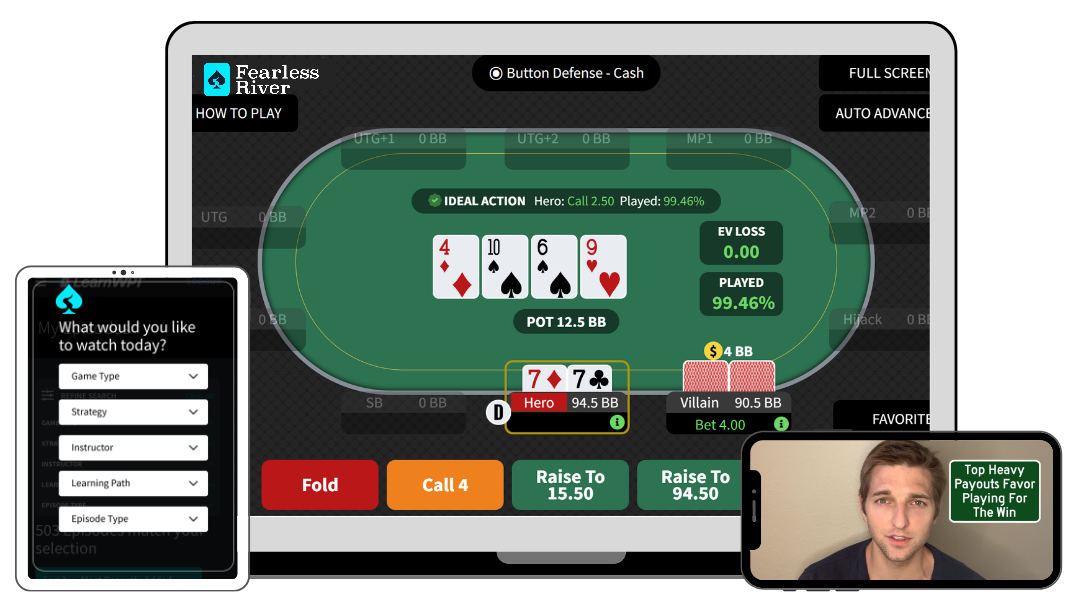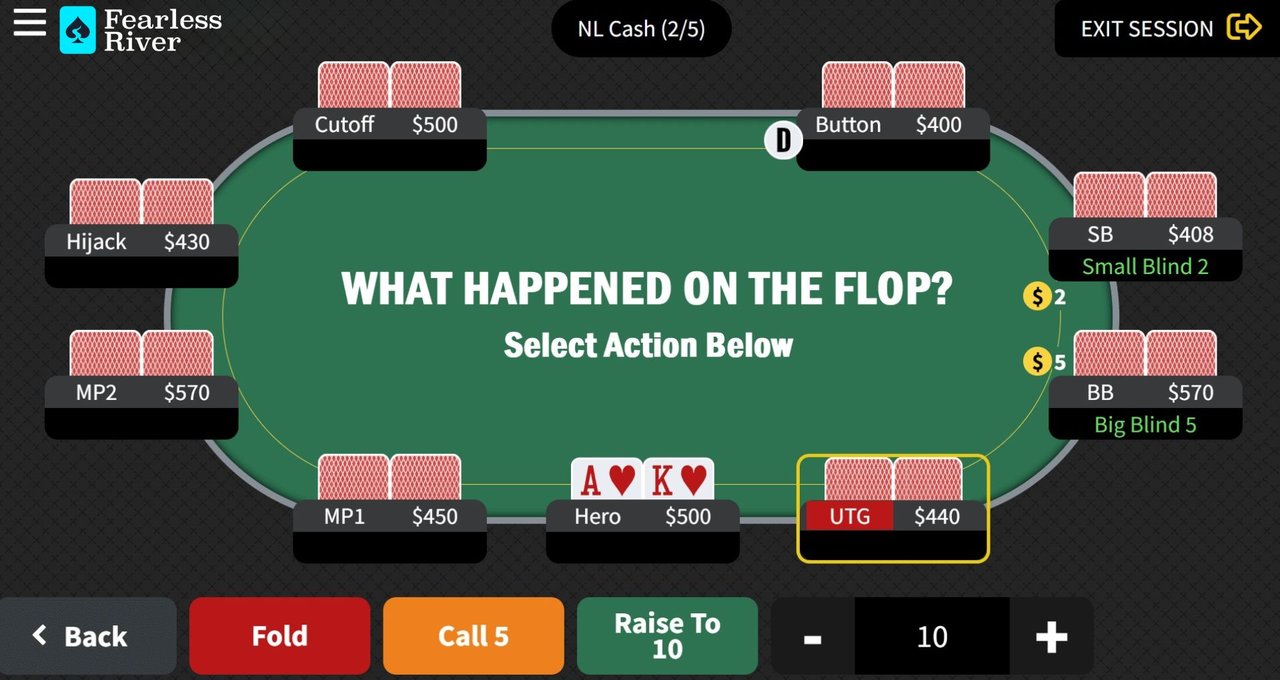A♠A♥ Facing a Flop Check-Raise, what do you do here?
DECISION POINT: In a live $1-3 game with a $6 Under The Gun straddle, the UTG+1 player calls and it folds to you in the Hijack. You raise to $25 with A♠A♥. The Button and UTG call and UTG+1 folds. UTG checks the 3♠3♦5♣ flop and you bet $35. The Button folds and UTG check-raises to $70. Action is on you, what do you do here?
PRO ANSWER: We are dealt pocket aces in the Hijack seat in a $1-3 cash game with a $6 straddle from under the gun. UTG+1 calls the straddle and it is folds to us. In this spot it is standard to make it 3x the straddle amount plus the call amount, or $24.
In most common live games players in the UTG straddler tends to be “stickier” than other players. Making an UTG straddle is a bad play, and people do it to either create action or gamble. Because of those reasons the likelihood of UTG folding goes down significantly. In addition, if we make our raise too small the UTG+1 player is likely to call as well, and taking a multiway pot with pocket aces isn’t what we want to do. This is a spot where we should probably make it $30+ but in the moment we elect to bet $25 instead and get called by both the Button and the UTG straddler.
The flop is 3s3d5c and is one of the better flops for us that doesn’t contain an ace. UTG checks and action is on us. Given the dryness of the board and how our hand performs versus our opponent’s ranges, we don’t need to bet very big here. Something in the neighborhood of 35-40% of the pot is perfectly fine, especially given that the stack to pot ratio (SPR) is around 3. The Button folds and the original straddler min-raises to $70.
Continued below...
This is a spot where some players often see monsters under the bed. The very small raise does make it less likely that our opponent is bluffing, since they can reasonably expect us to call with most of our range. That being said, their range here is much wider than just 3x/55. Our opponent could easily have other overpairs, or could be setting up a big turn semi-bluff with a hand like A2s/A4s/46s/76s. Villain could also be overvaluing a hand like 77/88 or even A5s in this spot. Sometimes our opponent will have 55/3x and we will be crushed.
When we consider all the hands UTG's range we are way ahead, especially once we factor in that our opponent is straddling UTG preflop. Straddling from UTG is a very negative expectation play typically used by people who are looking for action rather than a tight aggressive strategy.
Given the overall wide range UTG can have in this spot and our position, if we move all-in now it gives our opponent the opportunity to get away from some of their semi-bluffs and even A5s type hands fairly easily. If we proceed by calling we give UTG additional opportunities to pot commit themselves on future streets with bluffs and worse value hands, which is very good for us.
Calling is the best play.
How would you play it?
Share your answer in the comments below!
WHAT IS A LEARNWPT STRATEGY EPISODE?
We started LearnWPT to make it easy for everyone to improve their game in their spare time.
That’s why we present our Members with poker “lessons” via Strategy Videos so they can elevate their games by watching a short video on a phone, tablet, or personal computer.
Strategy Episodes are presented in short, easy to digest segments (usually 10-15 minutes) that focus on introducing and reinforcing specific aspects of the LearnWPT game plan.
Join LearnWPT.com for just $5 your first month and start improving your game with our on-demand library of over 450 game-changing strategy videos and access to all of the LearnWPT Membership Features!
Have Questions? Contact the support team at [email protected] and we'll be happy to help!
















